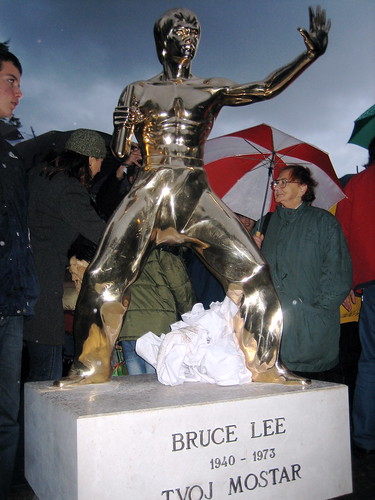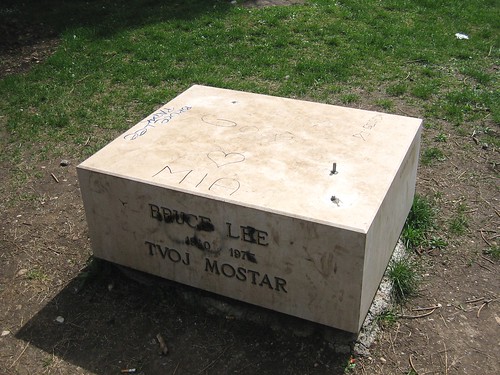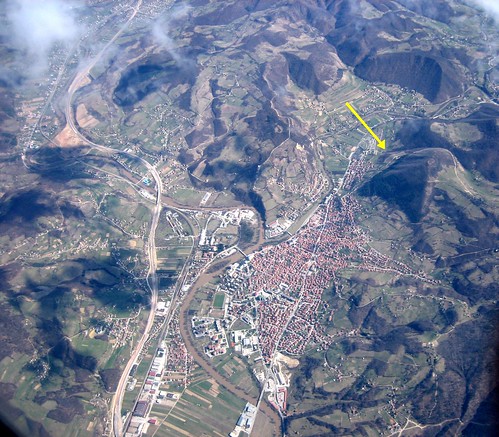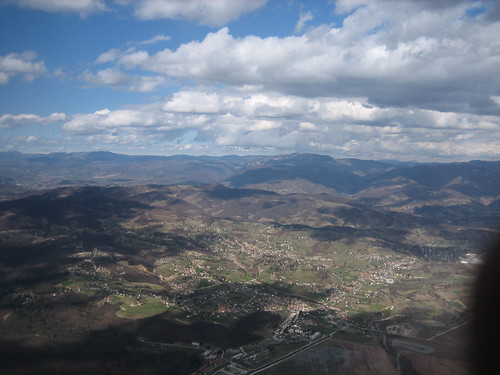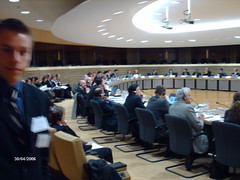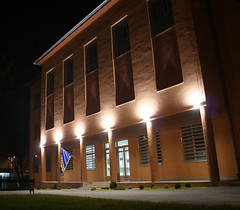
 The Court of BiH; High Security Courtroom 6 (where the sentencing took place).
The Court of BiH; High Security Courtroom 6 (where the sentencing took place).
Today the Court of BiH handed down its second ever conviction for war crimes, and its first for direct responsibility for crimes against humanity. Nedjo Samardzic was sentenced to 12 years imprisonment for 4 counts of crimes against humanity perpetrated in the town of Foca (which
I visited a few weeks ago). Among them were 2 counts for forcible imprisonment and physical abuse of civilians, and 2 counts of rape. Within the latter charges, Samardzic was found guilty of taking a 15-year girl into sexual slavery, and repeatedly raping her over a period of several months. Because of insufficient evidence, he was also acquitted on 6 counts, amongst them several rapes and one of participating in the mass murder of 30 civilians.
I just came back from the courtroom, where the entire procedure lasted about 15 minutes. The presiding judge, a diminutive Bosnian woman, seemed nervous. It is the second ever war crimes trial concluded at this Court, based on laws that were drafted only a few years ago, so I suppose I can't blame her. But her concluding statements, where she offered that "I think we have done the best job we could," and "Both sides are entitled to appeal, and they probably will do so," were, I think, probably gratuitous.
In front of me sat three creepy-looking goons, who I was told by a colleague were friends of Samardzic. They betrayed no emotion and left the building as soon as it was over. But not everyone was emotionless. Outside on the Court steps, the prosecutor was accosted by the head of a society called Women War Victims. In front of the TV cameras, presumably enraged by the charges Samardzic had been acquitted for, and the 12-year sentence, she told him in no uncertain terms that he should be ashamed for the job he had done. "You were more concerned with your salary than on paying for witnesses to come here to testify," she said. Another woman quietly cried, as she laid a wreath of flowers by the Court entrance.
The one question that is on my mind right now is: why was Nedjo Samardzic smiling? Indeed, as he was led away in handcuffs, a small grin crept across his face. Was he happy that, as a middle-aged man, he would again see the light of day and be able to hold his wife and children? Or was it simply a last, desperate grasp for a shred of dignity, after it had just been announced to the country that he was a monster who, among other egregious crimes, had repeatedly raped a 15-year old girl?
It is hard for me to say right now what I think of all this. On the one hand, Samardzic got off on many counts -- perhaps justifiably, although there are also mumblings that the prosecutor botched the case. Above all, Samardzic will only be in prison for 12 years. This, unfortunately, is the paradox of many war crimes cases. For complicated and sometimes mystifying reasons, often mass crimes during war result in lesser sentences than a single, similar crime in peacetime.
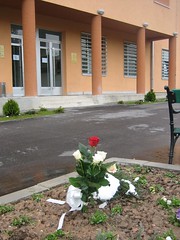
But on the other hand, the Court, and Bosnia, took a small, historic step forward. It has shown that it is capable of putting justice back in the hands of the people of Bosnia, by trying local war criminals fairly and efficiently. The people who work here feel that, despite the often inevitable shortcomings of justice, something tangible has been accomplished.
The case is not closed, as there will most likely be appeals from both sides. Nevertheless, Bosnia has today opened a new chapter in reckoning with the decade-old atrocities that clearly still haunt its people.
